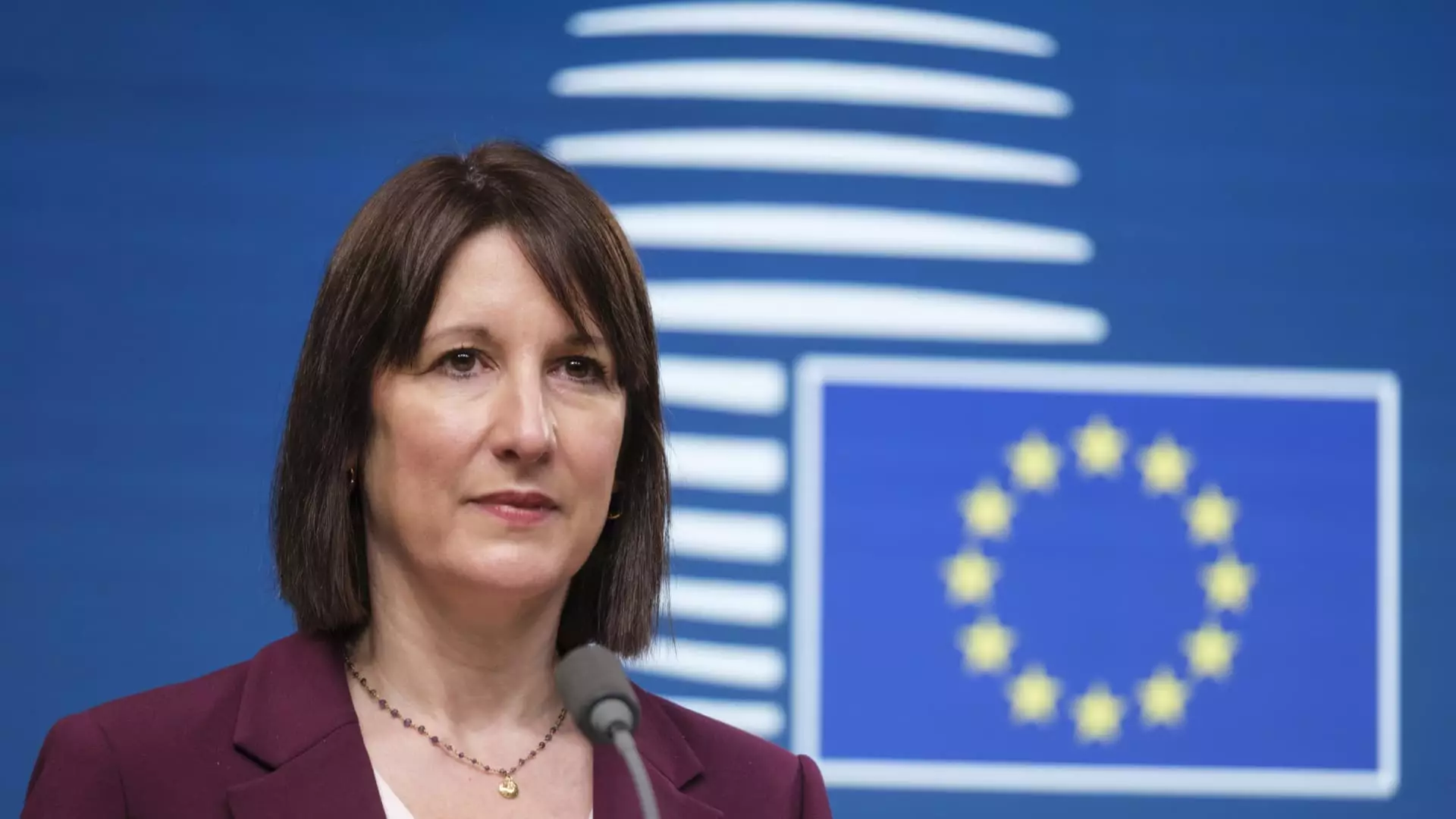In the shadow of President-elect Donald Trump’s impending administration, a notable transformation is unfolding in the diplomatic and economic relations between the United Kingdom and the European Union. The recent diplomatic engagements spearheaded by U.K. Chancellor Rachel Reeves in Brussels mark a critical juncture for both entities, as they seek to fortify their alliances in anticipation of a potentially protectionist American policy stance. This renewed collaboration reflects a conscious effort to navigate the geopolitical complexities arising from a changing global order and increases the urgency of the U.K.-EU relationship post-Brexit.
Rebuilding Trust Through Diplomacy
Reeves made headlines by initiating her first meetings with EU counterparts since the U.K.’s withdrawal from the EU in 2020. This act, symbolic of a thawing of relations, is crucial not just for economic reciprocity but also for asserting a unified front in the wake of uncertainties that a new U.S. administration may bring. Eurogroup President Paschal Donohoe emphasized the importance of such meetings, expressing hope for ongoing dialogue that transcends past grievances.
Diplomatically, Reeves focused on establishing a foundation of trust rather than diving headfirst into negotiations. Her declaration, “I did not come here today to start a negotiation,” conveyed a clear intent to rebuild relationships rather than intensify disputes, which is a sensible approach given the tumultuous relationship that has characterized U.K.-EU interactions post-Brexit. Both parties share vested interests in mitigating potential economic upheaval and harnessing collective strength against external threats.
Key discussions crystallized around shared concerns over geopolitical issues such as support for Ukraine amidst ongoing conflict, free trade promotion, and enhancing bilateral economic partnerships. These areas resonate strongly amid mounting global tensions, particularly with Russia and China creating an intricate web of international relations that necessitates collaboration among allies.
The disclosed feedback from anonymous EU officials hints at a broader sentiment surrounding collective values and interests. The concerns regarding Trump’s previous comments on tariffs and reduced support for Ukraine have undeniably influenced the tone of discussions. EU leaders are acutely aware that a more protectionist American stance could threaten not only European economies but also weaken transatlantic alliances. By reaffirming their commitment to Ukraine and advocating a united economic front, the U.K. and EU aim to enhance their resilience against potential upheavals.
The shift in political leadership within the U.K. also presents noteworthy implications for its relationship with the EU. The Labour government, which took office in July, is keen to mend fences and foster cooperation with European neighbors. This desire for renewed engagement contrasts significantly with the previous Conservative administration that often espoused a confrontational stance towards the EU.
As Reeves sets the stage for formal negotiations and cooperative dialogues slated for early next year, it is crucial to emphasize the Labour government’s commitment to not revisit contentious discussions around rejoining the EU or altering existing agreements. The focus, instead, appears to be on fostering economic recovery, collaborating on defense, and building a cohesive strategy towards the U.S.
The evolving landscape of U.K.-EU relations, encapsulated in Reeves’ recent visit to Brussels, represents a pragmatic approach to navigating a world shaped by uncertainty. By centering discussions on shared interests and addressing mutual concerns transparently, both parties are taking steps toward establishing a more cooperative framework that could withstand challenges from external powers.
As 2025 approaches, with significant meetings on the horizon, it is essential for both the U.K. and the EU to leverage these foundational dialogues into robust partnerships that protect their interests. The disquiet surrounding Trump’s potential policies heightens the urgency of these efforts, marking a significant point of reckoning in which the historical alliances of Britain and Europe may redefine themselves amidst global shifts. The path forward may not be easy, but with trust as a cornerstone, it may lead to a more unified and fortified alliance against future challenges.


Leave a Reply